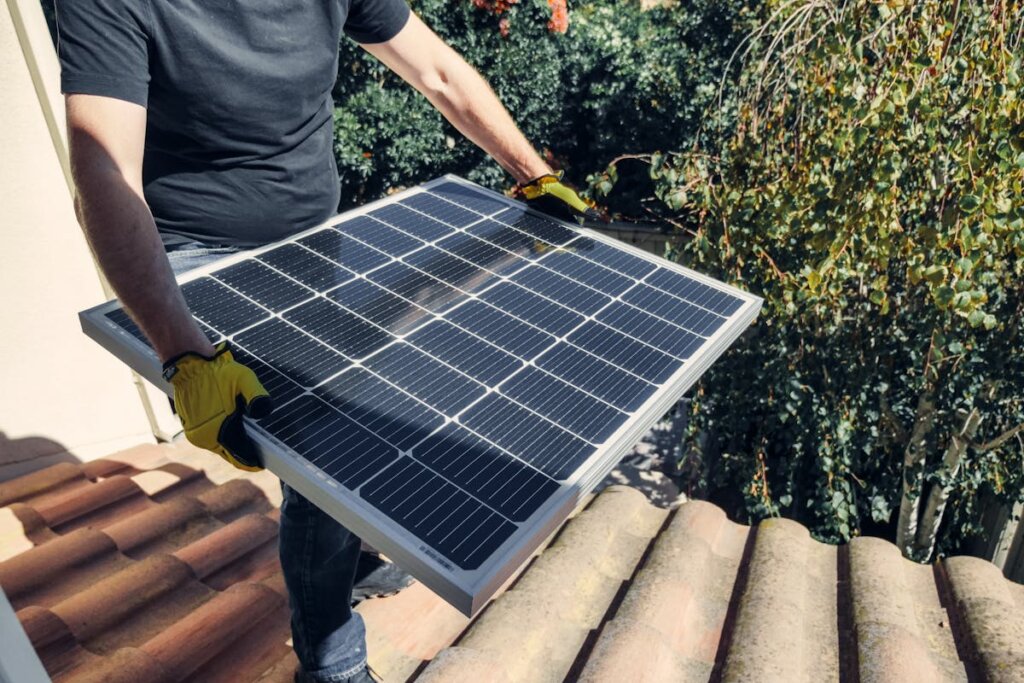
Leasing solar panels has become a popular option for homeowners in Connecticut who want to reduce their energy bills without paying for an entire solar system upfront. Solar leasing offers immediate benefits, including access to renewable energy and potential savings, but it also comes with long-term obligations that can affect your finances and your property.
If you’re considering leasing solar panels for your home, it’s important to understand the full scope of what you’re agreeing to. A solar panel lease is a binding contract that lasts years, sometimes decades, and it can impact your ability to sell your home, qualify for incentives, or make changes to your property.
Knowing what to expect before you sign gives you the confidence to move forward with clarity and peace of mind.
Understand How a Solar Lease Works
A solar lease is a contract between you and a solar provider. The company installs and owns the solar panel system on your roof, and you agree to pay a monthly fee to use the energy it generates. You do not own the equipment. Instead, you are paying for the right to use it, and the provider is responsible for maintenance and repairs.
This arrangement can be appealing because it requires little or no upfront cost. The provider installs the system, and in return, you agree to pay for the power it produces or a fixed lease rate for the duration of the agreement. These contracts typically last anywhere from 15 to 25 years, so you’re committing to a long-term relationship with the provider.
Before signing, make sure you understand the terms of the lease, the duration, the escalation clauses that increase your payments annually, and whether the provider guarantees a certain level of performance from the system.
Be Aware of Escalating Payments
One of the most overlooked aspects of a solar lease agreement is the annual price escalation. Most solar leases include a clause that increases your monthly payments every year. This is meant to account for inflation or rising energy costs, but over time it can add up significantly.
It’s important to compare the escalation rate to projected energy cost savings. If your lease increases by three percent per year, but your utility company’s rates only go up by one percent, you could end up paying more than you save within a few years. Carefully read the agreement to find the exact escalation rate and calculate what your monthly payment will be five, ten, or twenty years into the future.
This clause is often buried in the fine print, so don’t skip over it. Knowing how your costs will grow over time helps you determine whether the lease will truly save you money.
Consider the Impact on Selling Your Home
A solar lease agreement can complicate the process of selling your home. Since the panels are not owned outright, the lease must either be transferred to the new owner or bought out before closing. Not all buyers are willing to take on a lease, and not all buyers will qualify under the solar company’s terms.
If the buyer cannot qualify to assume the lease, you may be forced to pay off the remaining balance or renegotiate terms with the provider. This could reduce your home’s value or create delays during the sale. Some potential buyers may view the lease as a liability rather than a benefit, especially if the monthly lease payments exceed what they would pay for electricity without solar.
If you’re planning to sell your home in the near future, ask the solar company how the transfer process works. Request copies of the documentation required for the buyer and ask how often transfers are approved. The more you know now, the easier it will be to avoid problems down the road.
Ask About Maintenance and Repairs
One of the advantages of leasing solar panels is that the provider usually handles all maintenance and repairs. However, it is important to understand what is covered and what is not. Some providers may only service specific components, while others cover the full system. Others may offer maintenance but charge service fees depending on the issue.
You’ll also want to know how quickly they respond to service requests. If your panels stop working, your utility bill could skyrocket. Ask whether performance guarantees are included in the lease. These guarantees hold the provider accountable for making sure the system produces the energy it was designed to.
Read through the lease carefully to confirm who is responsible if something breaks or underperforms. If the provider is covering maintenance, confirm whether they will proactively monitor the system or wait for you to report issues.
Know the Difference Between a Lease and a Power Purchase Agreement
Although they seem similar, there’s a key difference between a solar lease and a power purchase agreement, also known as a PPA. With a lease, you pay a fixed monthly fee to use the solar panels, regardless of how much energy you use. With a PPA, you pay based on the amount of electricity the panels produce.
Both options offer low upfront costs, but the long-term value can vary. With a PPA, your bill can fluctuate month to month based on production levels and seasonal changes. A lease, on the other hand, gives you more predictability but may not reflect actual energy use. If your energy needs change, one structure may be more cost-effective than the other.
Before signing, ask your provider to explain both options in detail. Review side-by-side comparisons showing what you can expect to pay over the life of the agreement. Choosing the right one depends on your household’s energy use, your goals, and your financial situation.
Review Incentives and Who Gets Them
Federal, state, and local programs offer tax incentives and rebates for solar installations. However, if you lease your system, you are not the owner, which means you may not qualify for these benefits. The provider who owns the system typically claims the incentives.
This is often how providers can offer leases with no upfront costs. They claim the tax credits and pass some of the savings to you through lower monthly payments. While this isn’t necessarily a bad thing, it’s important to understand that you are not eligible for the same credits as someone who buys their system outright.
Ask the provider what incentives are available and who benefits from them. Get a breakdown of how the value of these incentives is built into your monthly payments. This gives you a clearer picture of the true value of the lease.
Make Sure the Contract Covers Removal
What happens when the lease ends? In most cases, you’ll have several options. You might be able to extend the lease, buy the panels at fair market value, or have them removed at no cost. However, not all agreements make this process easy or affordable.
Make sure the lease spells out what happens at the end of the term. If removal is an option, confirm that the provider is responsible for restoring your roof to its original condition. If you decide to buy the system, ask how fair market value is determined.
Getting clear answers about what happens at the end of the lease can help you avoid surprise expenses and complications later on.
Conclusion
Leasing solar panels can be a smart decision for many homeowners, but it’s not something to enter into lightly. The long-term nature of a solar panel lease means that every clause matters. From rising payments to selling your home, from maintenance to contract expiration, every detail can impact your finances and flexibility.
Before you sign a solar panel lease agreement, take the time to understand the terms, compare it to other options, and ask the right questions. When you know what to expect, you can move forward with confidence and enjoy the benefits of solar power without the stress of unwanted surprises.

